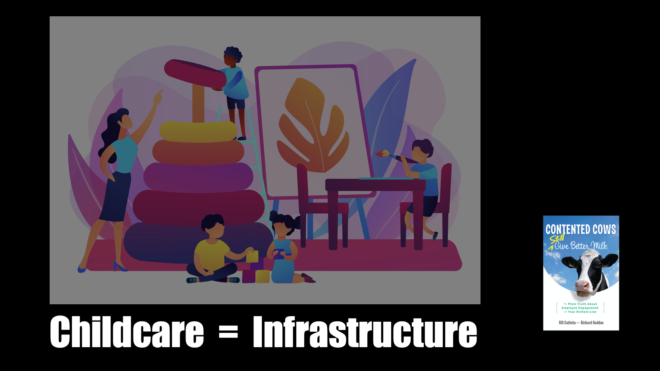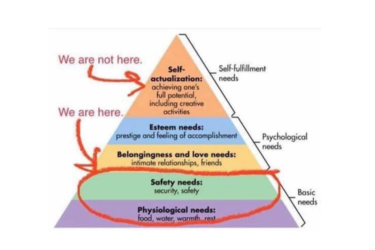As much as businesses depend upon electricity, reliable digital signal, mail, roads, bridges, and airports to do our thing, we also rely on the availability of talented labor in sufficient quantity to do whatever it is we do. For too long, much of our workforce has seen its availability tightly constrained by reliance on a single, thin thread… education / daycare for America’s children.
Let’s get something straight at the outset: This is NOT a socialistic plea for business or government to assume responsibility for children that they didn’t make. But it is a clarion call for all those with a stake in the matter – parents, educators, business, and yes, government to recognize that what we’ve been doing isn’t working, that we’re all paying a great price for it, and need to do something about it.
From a cold, steely-eyed business perspective, it’s nigh unto impossible to operate any labor-intensive business in an already tight labor market when 2% of that market has removed itself to the sidelines due to the lack of reliable childcare options. We’re talking about American women predominantly, over three million of them, who have abandoned paid positions to care for children in the face of pandemic-inspired school and daycare closures.
Some might argue that this is only a pandemic-related event, that the virus will soon be eradicated, and the workforce thing will be over. I wish that were true, but it’s not. This situation has been building for the better part of three decades, and round one of COVID just happens to be the event that pushed it over the edge. It’s a bit like saying that a freak, once in a lifetime storm is what created all the mayhem with the Texas power grid last week, and our friends in Texas can just roll over and go back to sleep. Au contraire! (I don’t know how to say that in Texan.)
Nor do I know what the answer is. I do know what it’s NOT, and that is to continue to do nothing, or revert to a 1950’s style workforce when half the workforce (some might argue the smarter, better listening, more collaborative half) was removed to the sidelines. My sense is that answers (plural, as there are no silver bullets) will likely come from an amalgam of:
Rethinking both school and traditional work schedules, roles for the elderly, the role of technology, and the boundaries for business and governmental participation in this process. What say you?
book richard or bill to speak for your meeting


